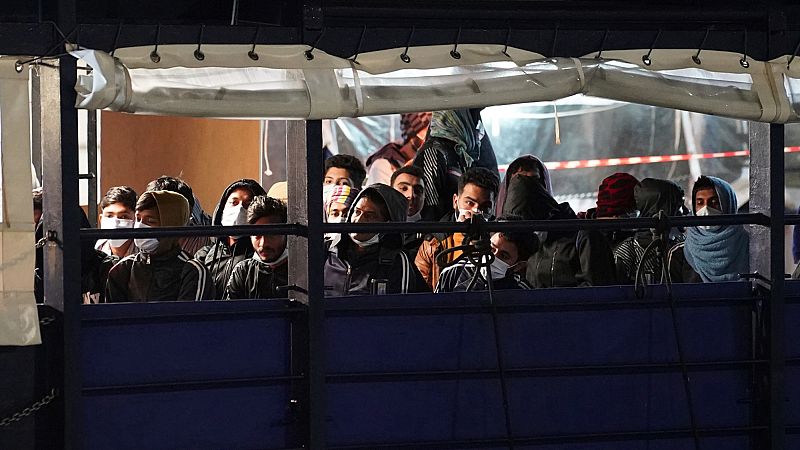
On Wednesday, the European Commission unveiled its initial roster of 'safe' countries of origin aimed at asylum procedures. This compilation includes nations from where individuals seeking asylum can expect their applications to undergo an accelerated review process with a stipulated timeframe of three months.
The Commission believes that all potential member nations satisfy the requirements for classification as safe countries of origin, except for Ukraine which remains excluded because of the current conflict within its borders. This implies that Albania, Bosnia, Georgia, Moldova, Montenegro, North Macedonia, Serbia, and Turkey are included in this category. Additionally, seven more countries have been added to the list: Kosovo, Bangladesh, Colombia, Egypt, India, Morocco, and Tunisia.
An EU official mentioned that migrants coming from these nations are seldom granted refugee status within the European Union, with acceptance rates being at or below 5%.
The European list must now gain approval from both the Parliament and member states, yet it is not intended to supersede national lists.
Certainly, numerous European Union nations have their own lists from safe countries of origin, whose nationals undergo expedited asylum processes.
For example, Italy’s list includes 19 nations such as Ghana, Senegal, and Algeria. Currently, Germany has listed nine countries, however, the new administration aims to considerably broaden this list to include Algeria, India, Morocco, and Tunisia.
The Commission indicates that their shared list will promote alignment across the national lists of member states. In the future, the Commission’s list could be included in new proposals aimed at simplifying the process for identifying safe countries of origin, according to an EU official.
The EU’s list of safe countries of origin is “flexible,” which means countries may be taken off or added at any time. According to the official, the Commission will periodically reassess the circumstances in each listed nation, stating further, "Just because a country isn’t currently part of the list doesn’t automatically imply that it might not still be considered safe."
The classification of safe countries of origin has been met with controversy.
Across different member states, courts have halted the deportation of migrants or the expedited processing of their asylum applications because they deemed that their countries of origin were not confirmed as safe.
Italy and Albania reached an agreement allowing Italy to transfer asylum seekers from Bangladesh and Egypt to centers in Albania, with Italian authorities conducting expedited evaluations of their refugee status.
But the Italian courts blocked The transfers were halted, and the case was referred to the EU Court of Justice due to uncertainty about whether the originating countries could truly be deemed entirely secure.
The Commission addresses this issue in its list, providing member states with the option to omit portions of a safe country from the classification.
The idea of a safe country of origin varies from that of a safe third country, intended to identify non-European Union nations where asylum seekers turned away from the EU can be sent back.